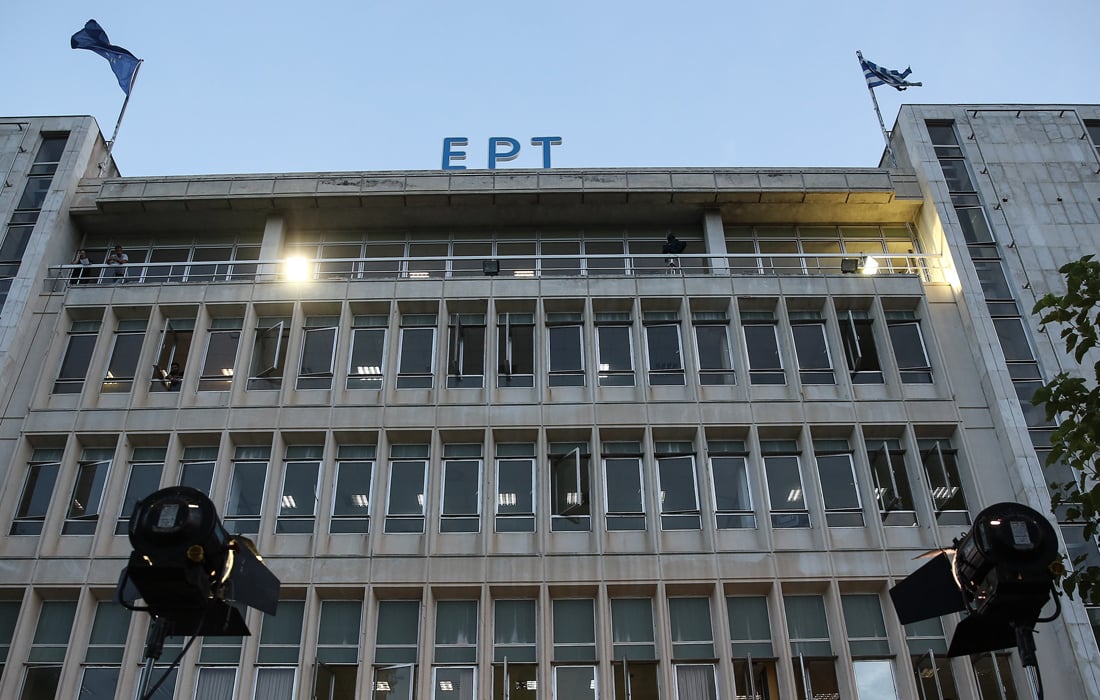The basic axes
The draft law to enhance the public character of Greek television radio – ERT SA, the modernization of its legal framework and the taking measures to implement the European Rules for the Freedom of Information – European Media Freedom Act.
Twelve years after Law 4173/2013, there is a draft law to seal the new era for public radio and television.
The most important axes included in the draft law are, among other things:
About ERT:
– Create Innovation Hub – Special Innovation Unit and Modern Technologies.
-Introduction of a framework for corporate social responsibility with widespread partnerships with Local Authorities, Chambers and other bodies.
-Framework for educational television and the exploitation of broadcasting content in collaboration with the Ministry of Education.
– Restoration of operation and administration – Integration of the provisions of the newest laws of Law 4972/2022 on Corporate Government of SA of the State, as well as Law 5062/2023 on the selection of administrations in the public sector.
-Advanced efficiency fee to ERT’s regular staff in the form of incentive to achieve fiscal and strategic objectives, up to EUR 6.5 million per year provided that ERT SA continues to have a surplus balance sheet.
-Recruits to improve the reciprocal fee in favor of ERT in energy accounts:
-Audit of the situations that ERT provides to ERT by chartered auditors, on the one hand two months and on the other hand.
– Corresponding check for all the unpaid amounts to date.
– Prohibition of providers of providers to propose or accept settlements or repayments/clearances of energy accounts that exclude the payment of the fee.
– Adoption of sanctions for non -compliance with providers in the above.
– Cooperation with AADE so that the endless amounts, after the annual clearance and certificate of the Certified Auditors, are collected through AADE on the basis of the VAT ID of the power supply.
With regard to EMFA and additional provisions:
-The concept of editorial freedom is clearly identified, the compliance of which is a capital obligation of media providers under the regulation.
-A database is set in which the media ownership will be registered to ensure, as required by the regulation, complete transparency, which enhances their credibility and reveals possible conflicts of interest.
-Instead of taking repressive measures to ensure transparency, a special signal is introduced which will be awarded by the ESR to the media registered in the database and which will post and display in the appropriate way by means of medium.
-The award of the signal will be a proof of compliance with the obligation of transparency established by the regulation and of course citizens will know at all times if the medium compliance with transparency obligations, so in the end it is reliable.
-Introduction of a complete control process through the ESR for the collection of SMEs, for example through mergers, acquisitions, etc., when they can significantly affect pluralism or even editorial independence.
-Reception of all public bodies to post full information for each advertising expenditure prior to it, as well as total data on the costs they have carried out each year. The public will have full access to the relatives per body in a full and transparent manner.
-The establishment of the National Media Council for the first time is established, an independent self -regulation body where representatives of owners and employees of all media will participate, which is an optimal practice at European level.
-A regular annual funding in favor of the Slapps Observatory (SLAPPS) established by the POESY.
-National Education Policy is installed in the media.
-A national action plan for the safety of journalists is being set up to systematize and strengthen the efforts that have been launched for some years.
The draft law will remain in public consultation by October 2, 2025.
The Deputy Minister under the Prime Minister and a government spokesman Paul Marinakis stated:
“With this bill, public television is reinforced by substantive incisions with the aim of modernizing, technological upgrading, utilizing its content and cooperation with public bodies and the introduction of incentives for its regular staff.
At the same time, we are further enhancing the voice of journalists. EMFA is the most iconic institutional institutional intervention of the European Union in the press and media, with Greece welcoming its introduction from the first moment, having already adopted many of its forecasts first in the EU. Its integration brings, inter alia, arrangements for the rights and duties of media providers, such as the establishment of a database in the ESR for the publicity of the ownership status of the media, the transparency of state advertising, as well as the strengthening of the role of the ESR in securing its multiculture.
